Fermented Lemons – How to Preserve Lemons in Salt
This post may contain affiliate links. Read our disclosure policy here.
Want to keep some lemons around for as long as you can without taking up freezer space? These Fermented Lemons are crazy easy to make and they add a delightful flavor to many different dishes!
Fermented Lemons
We use lemons quite a bit in our cooking and baking so I always tend to have some on hand. Sometimes I will get a great deal on them and get a whole bunch at one time. In the past, we have peeled them and frozen the juice. While I really like this method, I also wondered if there was anything else I could do.
That’s when I started making fermented lemons. Not only do they last longer and not take up my precious freezer space, they also add a really interesting flavor to dishes such as hummus, chicken, and a soaked sunflower seed dip that I’ve been making.
If you have extra lemons, this can be a great way to use them and to add new flavors to your meals!
What You Need:
- Lemons
- Mason Jars
- Fermenter Lids
- Fermenting Weights
- Kraut Pounder
- Salt
Start by washing up your lemons well with produce wash and water. Use organic lemons if you are concerned about eating the peels.
Cut the ends off of each lemon.
Cut each lemon into quarters. Place them in a bowl with salt and covered each quarter with a generous amount of salt. DO NOT be afraid of the salt! These are meant to be salty. 🙂
Place the lemon quarters into your mason jars. I use a quart size but you can use a pint or a half gallon depending on how much you want to make and what you have lids for. Push down on the lemons with a kraut pounder until the juice comes out but don’t push down so hard that you crush all of the peels.
Continue to do this until you have filled up your jars. If you are unable to get enough juice to cover the lemons, simply squeeze more lemon juice into the jars to ensure all the peels are covered. You will also want to add some extra salt into the jars as you go along, just to make sure it’s all covered in salt as well.
Place a glass weight into the top of each jar so that it holds the contents of the jar down below the liquid. You can get a kit with all the weights, lids, and a pounder here.
Place the fermenting lids on the jars. If you have a different style of fermenting lids that’s fine, this is just the one that I’ve been using the most often lately because it’s easy. 🙂
Place the jars carefully into your pantry or another place where they will not be disturbed for several weeks.
Let the lemons ferment for at least 3 to 4 weeks. Once you are happy with the amount of time they have fermented, place a regular lid on the jars and put them in your fridge.
When you are ready to use the lemons, take a quarter out of the salt juice and scrape any insides out of it. Chop up the peel and use that in whatever dish you’d like to add it to for a wonderful, salty, tang!
Have you ever tried fermenting lemons?


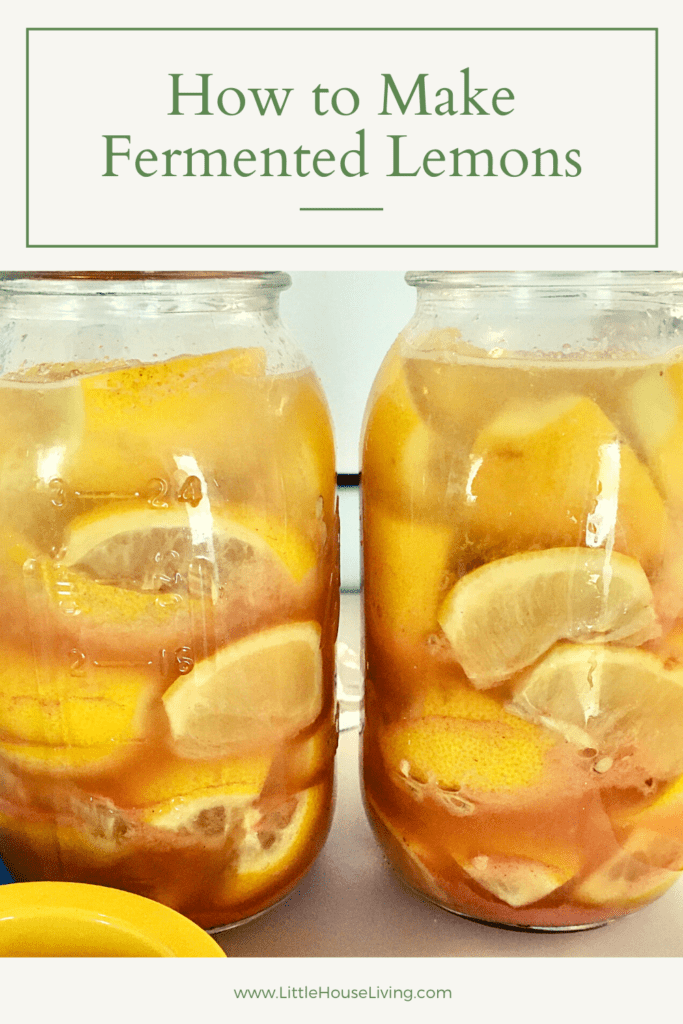
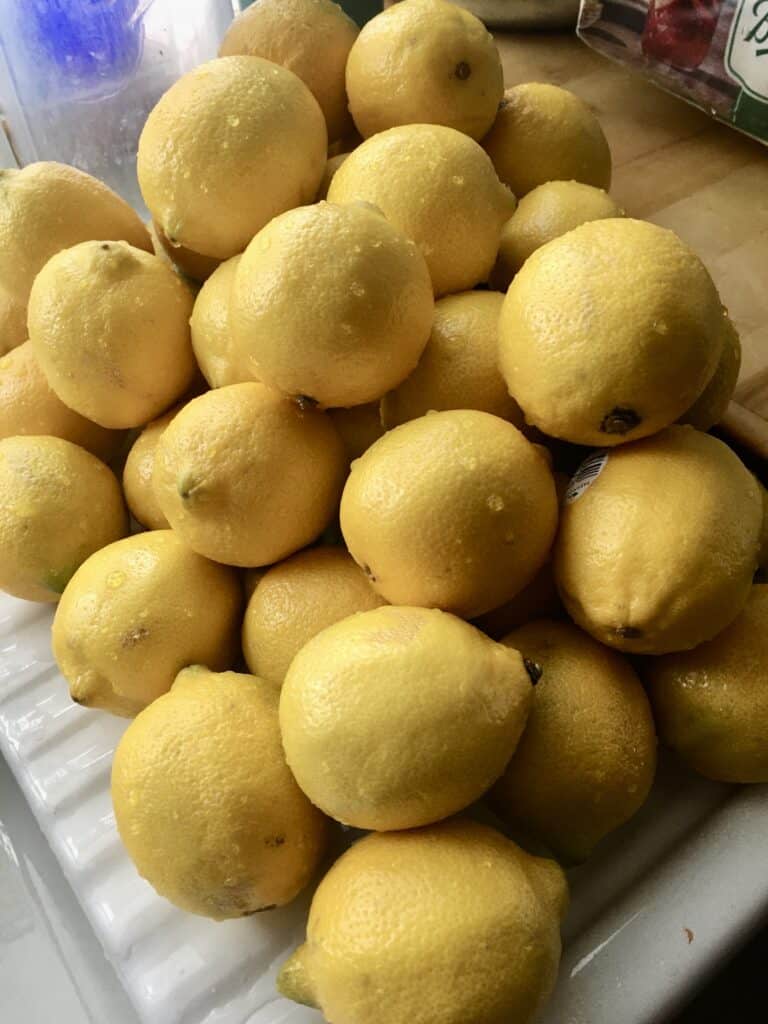
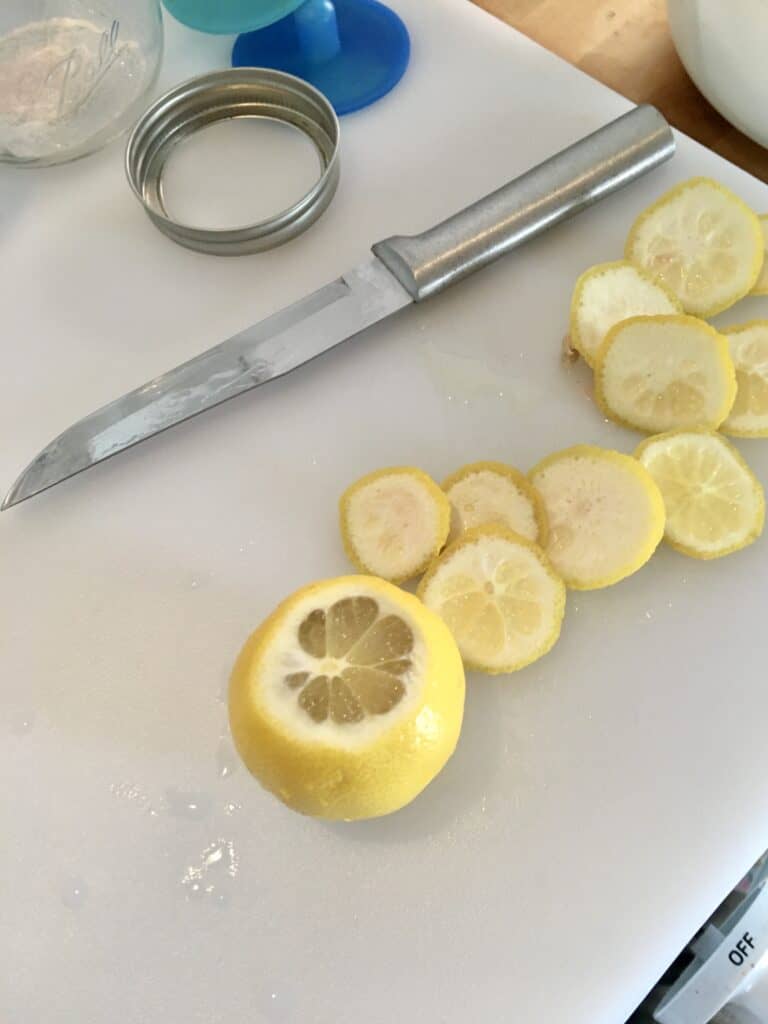
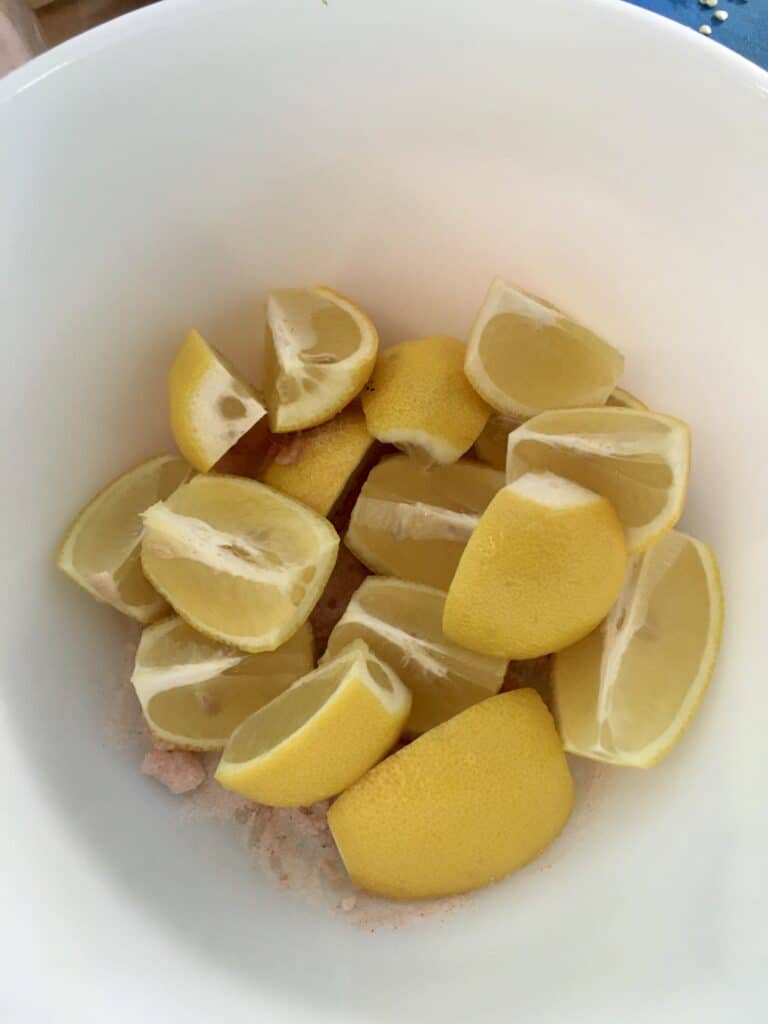
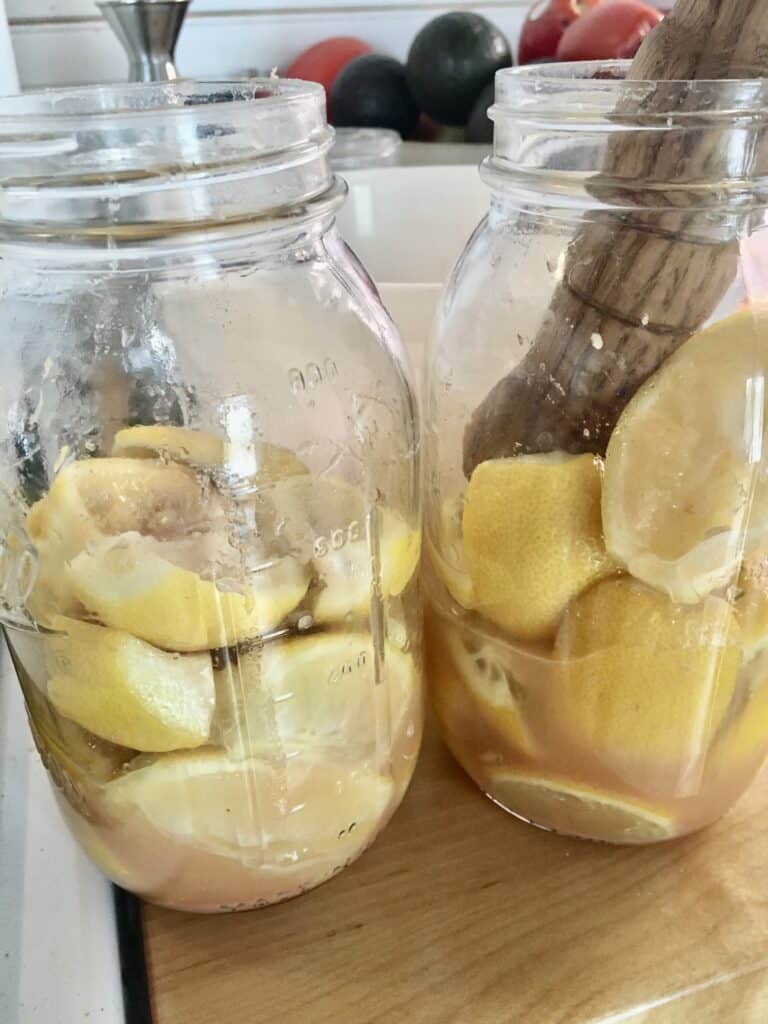
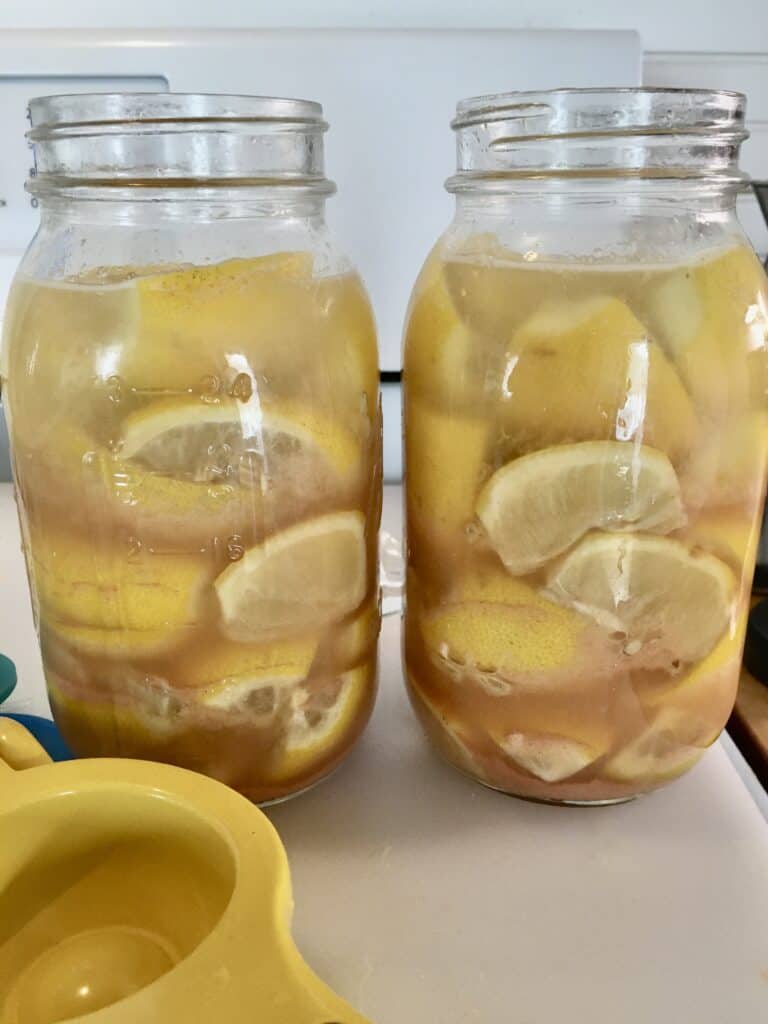
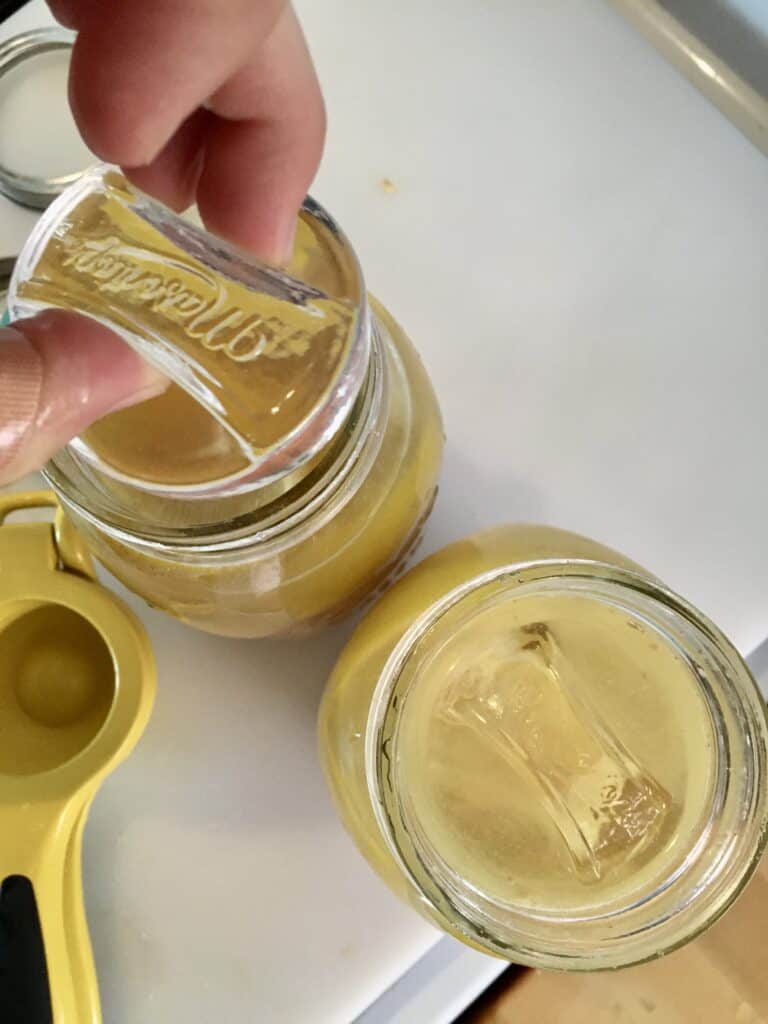
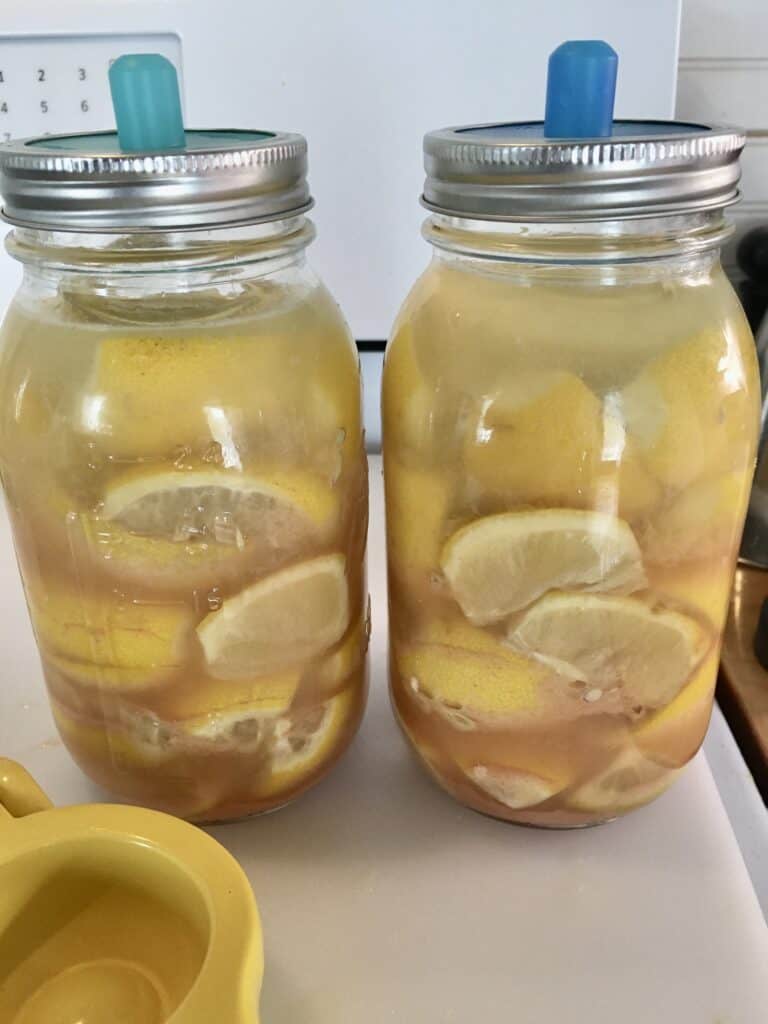
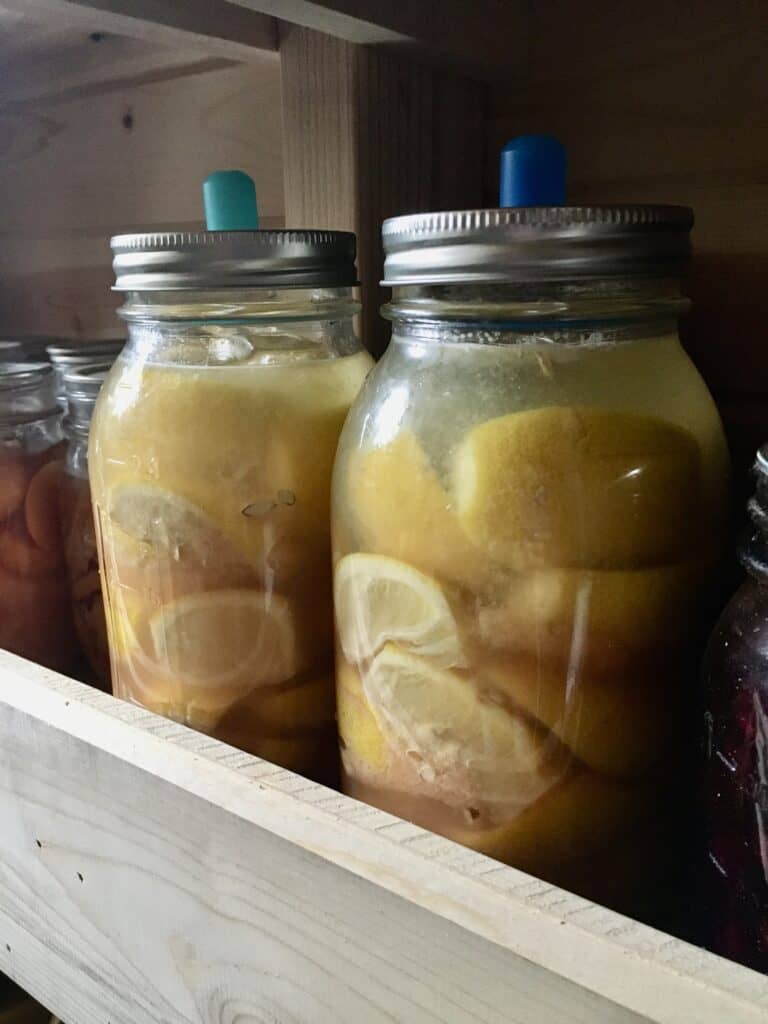


So……….the peel is the part you want to use, and the salty juice and pulp are dumped? I’m not sure I’m confident enough in trying this without more instruction, e.g., how much do you use in your hummus, is it more of a condiment (like horse radish) than an ingredient (like lemon juice)? The jarred lemon pieces in your pictures look pretty whole – do you just press firmly, or actually pound them? Are seeds left in or removed?
Thanks so much for sharing something new (new to me anyway)! I always wondered what folks did with lemons in jars that I’ve seen in pictures.
The lemon juice that would be in this ferment would be extremely salty. I’m sure you could use it if you wanted but I’m not sure what the application would be. Lemons are pressed down firmly, not beaten. I do not remove the seeds.
Thanks so much Merissa! I’m going to try a small jar, and see what happens 🙂
Happy Easter!
So, do I understand this correctly? In fermenting the lemons you do not get lemon juice to use?
The lemon juice that would be in this ferment would be extremely salty. I’m sure you could use it if you wanted but I’m not sure what the application would be.
Hello. Many thanks Merissa. I take advantage of your informations in a regular basis.
Since I have many fermented foods, I use the proportion for sauerkraut, which is 2,25% salt in weight (22,5 grs of salt for each Kg of Vegetables). This allows use it all. Peel, juice, etc. Spices is also appreciated in mediterranean cuisine to add to fermented lemons (garlic, cloves, etc). Flavor is so tasty…
to hummus, add one tablespoon, check and put more if required. Do not put more salt previously. This is the best way to control the flavor.
Basically in the sub-continent we call it a water pickle and we add chilly flakes. Now the season for Raw mangoes are coming up so many households will make a pickle from that too
Merissa, I am confused. If all you want to use of the lemon is the peel, why leave the meat of the lemon attached in preservation? I would want to use the segments in cooking, juicing or just to eat. This method doesn’t keep segments at time to use in cooking? Could I just ferment the peels? and preserve segments separetly and use them?
Just asking?
Without the pulp it would be hard to fill the jar up enough with juice to cover the items inside.
I love a teaspoon of these chopped up in lettuce salads.
With nicer weather coming, couldn’t the salty lemon juice be converted somehow into citrinella type items? The great fragrance mixed with keeping pesky insects away.
With all the salt in the liquid, a nice scrub too?
How would you use this recipe when the fermentation is complete?
I used to have a small lemon tree in Florida. Because we got way too many lemons to use up the normal way, I made these fermented lemons. I used kosher salt. My husband and I liked the peels chopped very finely mixed into lamb burgers with other Mediterranean spices and feta cheese. Wonderful!
I sometimes used the fruit part very sparingly in salads and other savory dishes. But remember, it is very salty.
If you can’t see yourself throwing out the salty Juice, you can strain it through multiple layers of cheesecloth and let the salt dry. Then use your lemon salt like regular salt. But, depending on the size of the grains you started with, you may not get much salt. And it may not be worth the time involved.
If the lemon pulp is just thrown away, could you remove the pulp and just squeeze the juice out of it, and put the peels in the jar with the salt and juice? Seems you could get more peels in a jar, use less juice and get the same results. This just seems like a lot of waste.